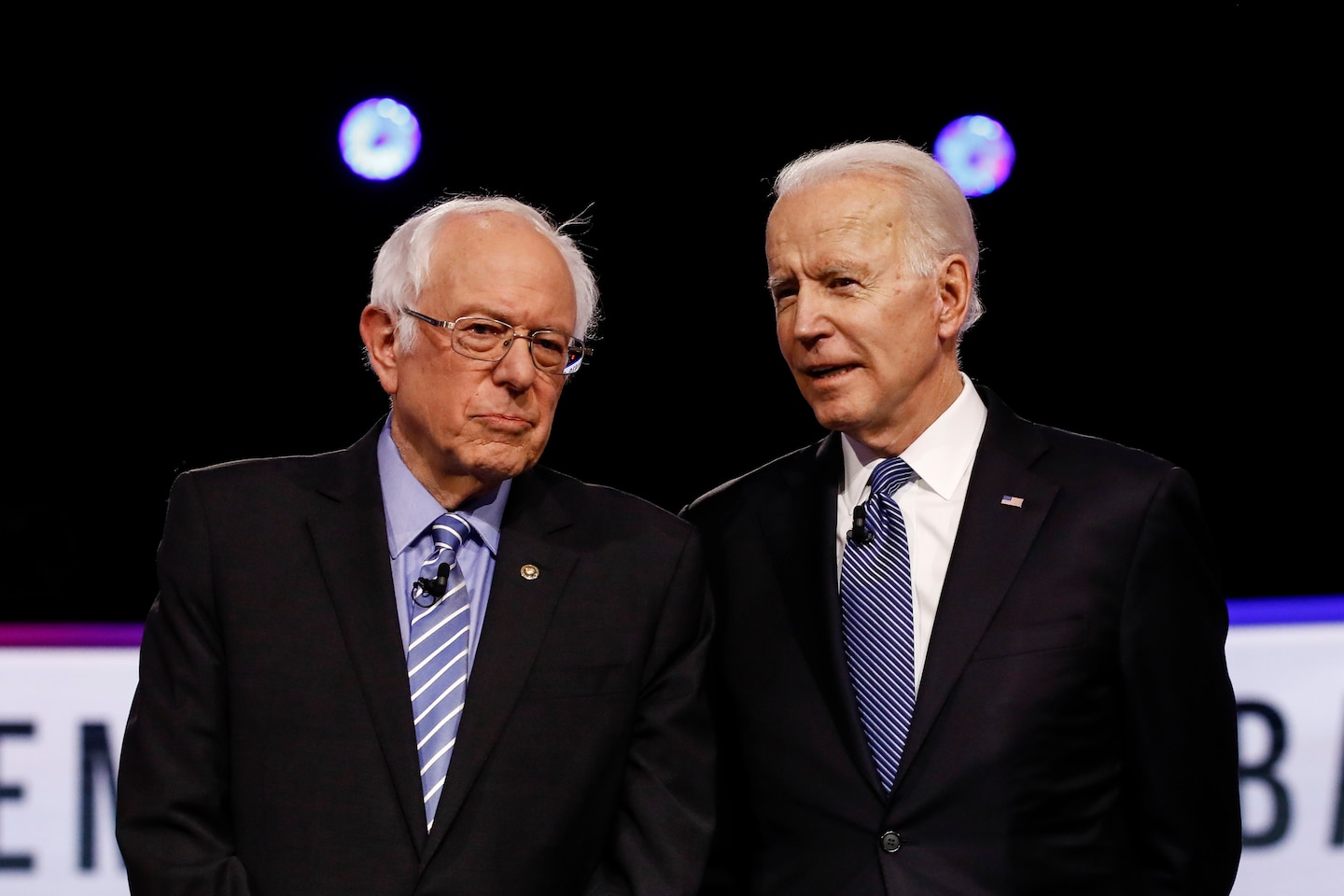Why Biden may follow through on a bolder agenda

The Sanders-Biden working groups’ recommendations, which will largely define the official 2020 Democratic Party Platform, are certainly bolder than anything Hillary Clinton or Barack Obama ran on. Even as Biden has consistently rejected some of Sanders’s signature issues — Medicare-for-all, the Green New Deal, etc. — he’s now backing a relatively far-reaching series of reforms.
Biden’s four-part economic program, dubbed “Build Back Better,” embraces strategies that have been largely anathema to Democrats in the conservative era — public-investment-driven growth, industrial policy, fair trade and an expansion of economic rights. Though still not backing the Green New Deal, he’s put forth a $1.7 trillion investment program on clean energy and energy efficiency, a $1.3 trillion Buy America program to rebuild and modernize U.S. infrastructure, and hundreds of billions of investment in education and housing each. In an economic downturn, the platform calls for subsidies to keep workers employed rather than force them into unemployment. Beyond the downturn, workers are promised a $15 minimum wage — a core Sanders demand — universal paid sick leave, stronger protections for organizing and increased minimum payments in Social Security as well as extending partial coverage to unpaid care workers.
On health care, Biden now champions lowering the eligibility age for Medicare to 60, expanding Medicaid, investing in community health-care centers and providing a public option run by Medicare that even workers with insurance from their employer can buy into. On trade, the Biden-Sanders recommendations pledge no further trade accords without enforceable labor, human rights and environmental standards, a tougher stance on China, and a crackdown on tax havens and perverse incentives that reward companies for moving jobs abroad.
To pay for all this, Biden would raise taxes on the wealthy and corporations (largely by reversing the Trump tax breaks), increase estate taxes and tax investors at the same rates as workers. He would spend about two times as much as Clinton proposed in 2016 and levy almost three times as much in new taxes, lowering after-tax annual incomes of the top 1 percent by about 10-15 percent.
Biden’s platform is still a far remove from the agenda championed by Sanders and Sen. Elizabeth Warren (D-Mass.). And politicians find it easy to trumpet reforms that are discarded upon election. Yet there are reasons to think that Biden may well pursue a good portion of this agenda once in office.
For one thing, the former vice president will take office amid the worst public health crisis in recent U.S. history and a severe recession that have exposed the human cost of our savage racial inequities, our broken health-care system, the absence of basic rights for workers and obscene inequality. Addressing these issues will require a far bolder agenda even than Obama should have adopted when taking office in the Great Recession.
Equally important, political movements are demanding change. The Black Lives Matter movement against the ingrained racism of our society is mobilizing the largest demonstrations in history. The climate change movement continues to grow in intensity and sophistication. The women’s uprising against Trump isn’t letting up. Neither Roosevelt nor Lyndon Johnson, the greatest reform presidents in the modern era, were radical tribunes before being elected. But the combination of reality — and of political movement — provided the imperative and the pressure for systemic reforms.
In addition, the Democratic policy community has dramatically shifted left. From Paul Krugman acknowledging that he and his colleagues were wrong in discounting the misery and dislocation caused by corporate-led globalization to pro-austerity voices (temporarily) hibernating in the face of the current crises, a new generation of economists is legitimizing ideas once considered verboten in establishment debates.
Needless to say, there are no guarantees. Biden has neither FDR’s eloquence nor his relish in taking on the “economic royalists” of his time. Biden may have his ability to work across the aisle, but he is hardly the force of nature that LBJ was in bending senators to his will. And Biden’s campaign is flooded with donations from Wall Street and various corporate interests. Those who rigged the rules in their favor will fight fiercely to block reforms in a system designed to make change difficult. Systemic reform will occur only if growing mass mobilizations and forceful congressional progressives force the change. What provides hope is that the moment compels, the ideas are clear and people are on the march.
Read more:






